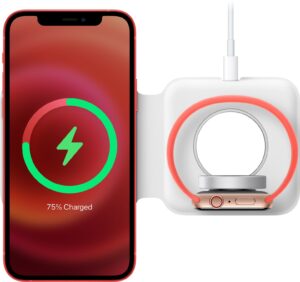How long does a car battery charger take? It’s a question that often arises when we find ourselves with a dead battery and are in need of a quick solution. Well, the good news is that a car battery charger can typically recharge a dead battery within a few hours. The exact time it takes depends on various factors such as the charger’s power output and the level of discharge of the battery. In this article, we’ll delve into the details of how long a car battery charger takes to revive your vehicle’s battery. So, let’s get started and find out the answer to this pressing question!
How Long Does a Car Battery Charger Take?
If you’ve ever found yourself with a dead car battery, you know how inconvenient and frustrating it can be. Having a car battery charger on hand can be a lifesaver in these situations, as it allows you to recharge your battery quickly and get back on the road. However, one common question many people have is how long does a car battery charger take to fully charge a battery? In this article, we will explore the factors that affect charging time and provide you with a comprehensive guide to understanding how long it typically takes to charge a car battery with a charger.
Factors Affecting Charging Time
Several factors come into play when determining how long a car battery charger will take to fully charge a battery. These factors include:
1. Battery Capacity: The capacity of your car battery is measured in ampere-hours (Ah) and indicates the total amount of charge it can hold. A larger battery will typically take longer to charge compared to a smaller battery.
2. Charger Output: The output power of the charger, typically expressed in amperes (A), determines how fast the charger can deliver charge to the battery. A charger with a higher output will charge the battery faster.
3. Battery Health: The condition of your car battery also plays a role in charging time. A battery that is in good health and well-maintained will typically charge more quickly than a weak or damaged battery.
4. Charging Method: Different chargers use various charging methods, such as trickle charging or fast charging. The chosen method can affect the charging time.
Charging Time Estimates
While the exact charging time can vary depending on the factors mentioned above, we can provide you with some general estimates for how long a car battery charger may take to fully charge a battery:
1. Standard Charger: A standard car battery charger with an output of around 2-10 amps will typically take around 8-12 hours to fully charge a flat battery. This charging time is suitable for regular maintenance and overnight charging.
2. Fast Charger: If you’re in a hurry and need to charge your battery quickly, a fast charger with an output of 40 amps or more can provide a significant charge in just 1-2 hours. However, it’s important to note that fast charging at high amperage can put additional stress on the battery and should be used sparingly.
3. Trickle Charger: Trickle chargers are designed for long-term maintenance charging and typically have a low output of around 1-2 amps. They can take anywhere from 24-48 hours to fully charge a battery, but they are ideal for keeping the battery topped up and maintaining its charge level over extended periods.
Optimizing Charging Time
While the charging time estimates provided above can give you a general idea of what to expect, there are a few things you can do to optimize the charging time and ensure a more efficient charging process:
1. Check Battery Voltage: Before connecting the charger, check the voltage of your battery using a multimeter. If the voltage is extremely low (below 10 volts), some chargers may not be able to detect the battery and initiate the charging process.
2. Clean Battery Terminals: Make sure the battery terminals are clean and free from corrosion. A dirty or corroded connection can hinder the charging process and increase charging time.
3. Choose the Right Charger: Select a charger that matches your battery’s requirements. Using a charger with an output that is too low will result in a longer charging time, while a charger with an output that is too high can potentially damage the battery.
4. Avoid Overcharging: Overcharging a battery can lead to reduced battery life and even damage. It’s important to monitor the charging progress and disconnect the charger once the battery is fully charged.
5. Follow Manufacturer Instructions: Always refer to the manufacturer’s instructions for both the car battery charger and your specific battery. Each charger and battery may have unique charging requirements, and following the instructions will help ensure optimal charging time and battery health.
Conclusion
The charging time of a car battery charger can vary depending on factors such as battery capacity, charger output, battery health, and the chosen charging method. Generally, a standard charger will take around 8-12 hours, a fast charger can provide a significant charge in 1-2 hours, and a trickle charger may take 24-48 hours. By following the tips mentioned above and understanding the factors at play, you can optimize the charging time and keep your car battery in good health. Always refer to the manufacturer’s instructions for the best charging practices.
Frequently Asked Questions
How long does it take to charge a car battery with a battery charger?
The time it takes to charge a car battery with a battery charger can vary depending on several factors.
What factors can affect the charging time of a car battery using a battery charger?
The charging time of a car battery using a battery charger can be influenced by factors such as the battery’s capacity, the charger’s output amperage, the current charge level of the battery, and the condition of the battery.
Can the capacity of the car battery affect the charging time with a battery charger?
Yes, the capacity of the car battery plays a role in the charging time. A larger capacity battery will typically take longer to charge compared to a smaller capacity one.
Does the output amperage of the battery charger affect the charging time?
Yes, the higher the output amperage of the battery charger, the faster it can charge the car battery. However, it’s important to use a charger with an amperage rating appropriate for the battery to prevent damage.
What should I do if my battery is almost fully charged but the charging process seems to be taking too long?
If you notice that the charging process is taking an unusually long time and your battery is almost fully charged, it may indicate a problem with either the charger or the battery. It is advisable to consult a professional to diagnose and address the issue.
Can a completely dead car battery be charged using a battery charger?
Yes, a completely dead car battery can be charged using a battery charger. However, it may take a longer time to charge compared to a partially discharged battery.
Final Thoughts
A car battery charger typically takes several hours to fully recharge a car battery. The exact time can vary depending on the charger’s amperage rating, the size and condition of the battery, and how deeply discharged the battery is. Faster chargers with higher amperage ratings can charge a battery more quickly, but they may also generate excessive heat and can potentially damage the battery. It is important to follow the charger manufacturer’s instructions and recommendations for best results. So, if you’re wondering how long does a car battery charger take to recharge a battery, it generally takes a few hours but can vary depending on various factors.



